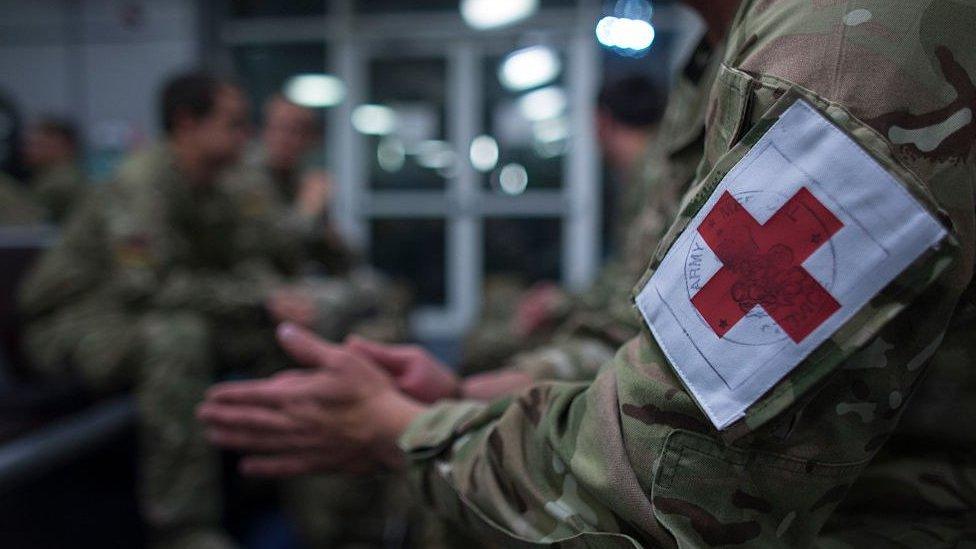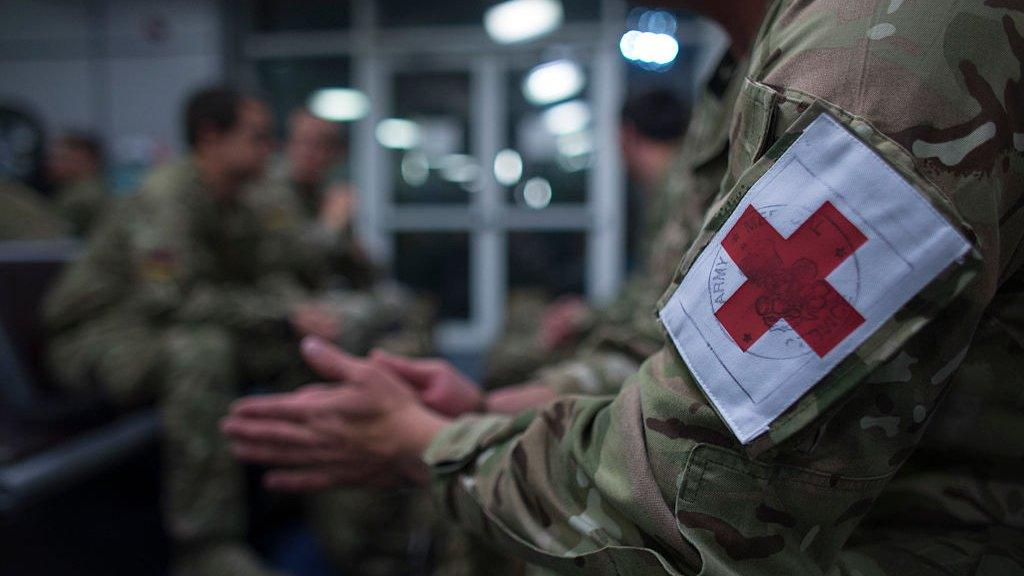Coronavirus: Military on duty in NI wards to help ease pressures
- Published

More than 100 medically-trained military personnel will be deployed in NI
Military personnel are now on hospital wards in Northern Ireland to help alleviate the staffing pressures of the pandemic.
The paramedic-grade equivalent staff have been drawn from different units across the UK, from all three services - the RAF, Royal Navy and Army.
The medics arrived in NI on a military transport flight from RAF Brize Norton in Oxfordshire earlier this week.
They will take up nursing assistant roles in local hospitals.
Eventually, more than 100 medically-trained military personnel will be deployed in Northern Ireland.
Last week, the chief executive of the Belfast Health Trust told Stormont's health committee the arrival of the military support would ensure staff could continue to deliver care to as many patients as possible.
"They are Band 4 medically-trained technicians, they will help take blood… they'll be working under normal management structures," Dr Cathy Jack said.
"This is another group of highly-trained individuals that will support my staff and I welcome this."
In the past, the use of the military in Northern Ireland has provoked controversy.
While military help has already been used during the pandemic to transport equipment and patients, this is the first time military staff will be used in hospitals.
'Right direction'
On Wednesday, the Department of Health recorded 16 more coronavirus-related deaths, taking its toll so far to 1,779.
A further 527 people tested positive for the virus.
There are 775 people in Northern Ireland's hospitals who are being treated for the virus - 68 of them are in intensive care and the number of people requiring ventilators has risen to 56.
Health Minister Robin Swann said NI's reproduction (R) number - which measures the infection rate of Covid-19 - was "moving in the right direction".
The R number had risen to about 1.8 after the rules were relaxed for Christmas but it has been falling since lockdown restrictions were introduced on 26 December.
However, Chief Medical Officer Michael McBride warned the pressure on the healthcare system was still significant and would continue for several more weeks.
He added that there would need to be a "sustained" drop in the figures before relaxations of the lockdown could be considered by the executive.
On Wednesday night, the Department of Health also announced that anyone aged between 65 and 69 could book their Covid-19 vaccination appointments at one of NI's seven regional vaccination centres.
Related topics
- Published20 January 2021
